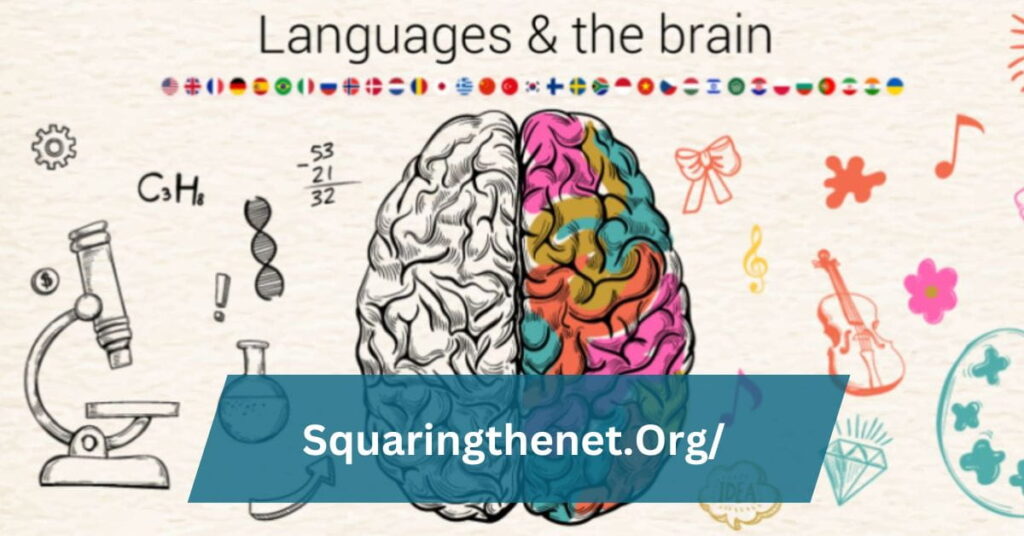Taking the quiz on SquaringtheNet.org gave me a clear view of my philosophical beliefs and how they affect my decisions. It has been a valuable tool for personal growth and problem-solving.
Understanding different philosophies can widen your perspective, improve your problem-solving skills, and support personal growth. Philosophy can help you make ethical choices, solve problems, and communicate your views more effectively.
We’ll examine SquaringtheNet.org and how its quizzes reveal your philosophical beliefs. Discover how this tool can enhance your understanding of your values and decision-making.
What Is The Philosophy Quiz On Squaringthenet.Org About?
SquaringtheNet.org provides a comprehensive philosophy quiz designed to help individuals identify their philosophical inclinations.

This quiz covers a wide range of philosophical schools of thought, from ancient to modern, offering users a detailed analysis of how their beliefs align with various philosophical perspectives. By engaging with this quiz, you gain insights into your personal philosophy, helping you understand how you interpret and interact with the world.
How Can Discovering Your Philosophy Type Benefit You?
Uncovering your philosophy type offers numerous benefits:
1. Enhanced Self-Awareness:
Understanding your philosophical inclinations helps clarify your core values and beliefs, leading to greater self-awareness.
2. Informed Decision-Making:
Knowing your philosophical perspective can guide your decisions and actions, aligning them with your personal values.
3. Improved Critical Thinking:
Awareness of different philosophical viewpoints enhances your ability to analyze and critique various arguments and situations.
What Are The Key Philosophical Schools Of Thought?
Philosophy encompasses a variety of schools of thought, each offering a unique approach to understanding reality and knowledge. Here are some key philosophical schools:
1. Empiricism:
This theory asserts that knowledge is derived from sensory experience. Prominent empiricists include John Locke, who argued that the mind starts as a blank slate and that knowledge is built through experience.
2. Idealism:
Idealism posits that reality is fundamentally shaped by the mind. George Berkeley, a key proponent, believed that material objects do not exist independently of our perceptions.
3. Pragmatism:
Pragmatism emphasizes the practical application of ideas by assessing their success in practical terms. Charles Sanders Peirce and William James are notable pragmatists who focused on the practical implications of philosophical concepts.
How Do Ancient Philosophies Influence Modern Thought?

Ancient philosophies form the foundation of Western thought, influencing various aspects of contemporary philosophy:
1. Socrates:
Socrates is known for his method of questioning, which involves probing assumptions and uncovering underlying beliefs. His approach laid the groundwork for critical thinking and ethical inquiry.
2. Plato:
Plato, a student of Socrates, developed theories on forms and ideals. His works, such as “The Republic,” explore concepts of justice, governance, and the nature of reality.
3. Aristotle:
Aristotle’s comprehensive approach to philosophy covered logic, ethics, politics, and natural sciences. His works, including “Nicomachean Ethics” and “Politics,” have profoundly influenced various academic disciplines.
What Modern Philosophical Movements Are Important To Know?
Modern philosophy introduces new perspectives that reflect contemporary issues and advancements:
1. Utilitarianism:
Founded by Jeremy Bentham and further developed by John Stuart Mill, utilitarianism evaluates actions based on their ability to maximize happiness and minimize suffering.
2. Positivism:
Auguste Comte’s positivism advocates for the use of scientific methods to understand social phenomena. This movement emphasizes empirical evidence and the scientific method.
3. Existentialism:
Existentialism, associated with philosophers like Jean-Paul Sartre and Simone de Beauvoir, explores themes of freedom, responsibility, and the search for meaning in an indifferent universe.
How Can Self-Assessment Help You Identify Your Philosophy Type?
Self-assessment techniques are crucial for identifying your philosophy type:
1. Reflect on Core Values:
Consider your beliefs about morality, existence, and knowledge. Reflecting on these can help you pinpoint your philosophical orientation.
2. Evaluate Your Reactions:
Analyze how you respond to philosophical dilemmas and theoretical scenarios. Your responses can reveal underlying philosophical tendencies.
3. Engage with Thought Experiments:
Engage with thought experiments and hypothetical situations to test your philosophical viewpoints and refine your understanding.
What Impact Did Modern Philosophers Have On Contemporary Philosophy?

Modern philosophers have profoundly shaped contemporary thought:
1. Immanuel Kant:
His “Critique of Pure Reason” redefined metaphysical and epistemological approaches, introducing the concept of transcendental idealism and the categorical imperative.
2. John Stuart Mill:
Advocated for utilitarian ethics and individual freedoms, contributing to political and social philosophy with works like On Liberty.
3. Jean-Paul Sartre:
His existentialist philosophy emphasizes individual freedom and responsibility, challenging traditional views on human existence and meaning.
How Can Exploring Different Philosophical Tendencies Enhance Your Understanding?
Understanding various philosophical ideas can greatly improve your perspective on the world. Learning about different philosophies allows you to see things from new angles and handle problems more effectively. This approach enhances your ability to analyze situations and encourages personal growth by prompting you to reflect on your own beliefs and values.
Philosophy is also practical in daily life. It helps you make ethical decisions by offering clear frameworks for addressing moral issues. Additionally, it improves problem-solving skills and aids in finding creative solutions. Knowing philosophical concepts also strengthens your ability to communicate and justify your opinions clearly.
FAQ’s:
1. What is the nature of existence?
The nature of existence is about understanding what it means to be alive and what makes something real. It examines why we are here and what it means to exist.
2. How do you define morality?
Morality is about deciding what is right and wrong. It involves understanding how to act in fair and good ways, and it helps us make choices that align with our values.
3. What is the purpose of life?
The purpose of life is the reason or meaning behind our existence. It explores what we are meant to achieve or experience during our lifetime and what gives our lives significance.
4. How do different philosophies approach the concept of truth?
Different philosophies have various ideas about what truth is. Some believe truth is what can be proven through evidence and logic, while others think it depends on individual perspectives and experiences.
5. What role does free will play in philosophical thought?
Free will is the idea that we can make choices independent of external influences. Philosophers debate whether our actions are truly free or if they are determined by factors beyond our control, like genetics or environment.
6. How Can Philosophical Theories Impact Modern Technology?
Philosophical theories can influence how we think about and use technology. For instance, ethical considerations from philosophy can guide how technologies are developed and implemented, ensuring they align with our values and societal needs.
Conclusion:
Through its insightful quizzes, SquaringtheNet.org offers a valuable resource for understanding your philosophical beliefs. This platform can help you gain a clearer view of your values and improve your decision-making skills.
